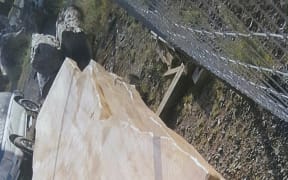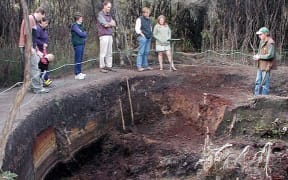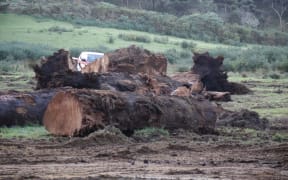A Far North conservation group has argued in court that swamp kauri is a fossil and cannot legally be exported.
The Northland Environmental Protection Society (NEPS) has taken the Ministry for Primary Industries (MPI) to the High Court, over its regulation of the swamp kauri industry.
It says the Ministry has failed to restrict exports to finished objects and stumps as required by the Forests Act, but yesterday rolled out another argument against the exports.
The society's lawyer, David Bullock, told Justice Toogood the Protected Objects Act forbids the export of certain objects that are part of New Zealand's heritage, for reasons of their aesthetic, cultural, scientific and other values.
The act includes fossils and has its own definition of what a fossil is, describing them as the remains of any organism pre-dating human habitation - preserved by any means, not just something petrified in stone.
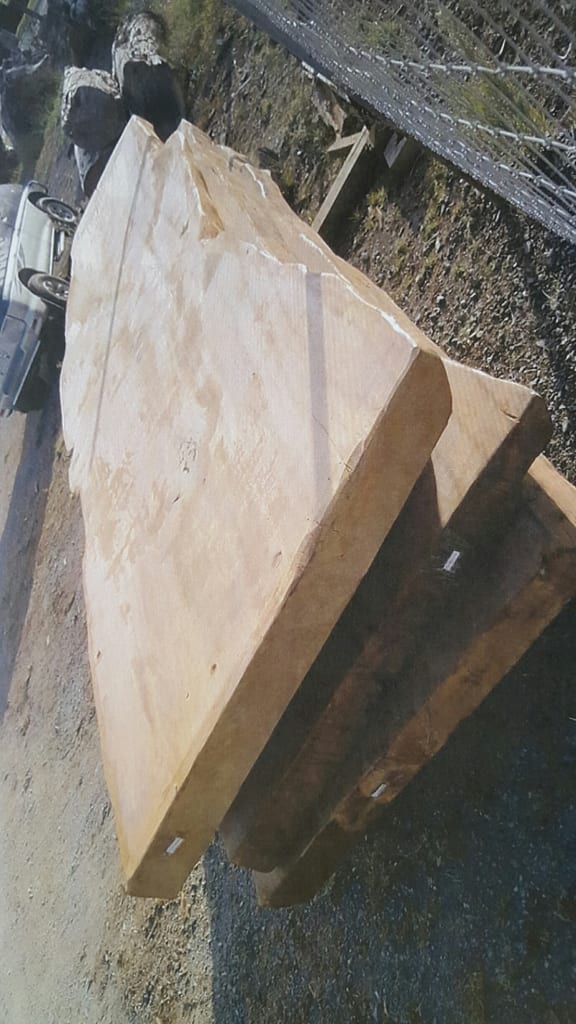
Slabs like this are exported to China as table tops. This photo was filed as evidence in court. Photo: Ministry of Primary Industries
Mr Bullock said swamp kauri met those definitions, but the Protected Objects Act had been bypassed and vast amounts of kauri were leaving the country.
"There's no real difference between swamp kauri and living kauri timber," he said. "But if someone wants to use kauri for any purpose the only option left is swamp kauri ."
Mr Bullock said kauri had been so widely-used in the past, for building boats and houses, that there was now no timber available above ground.
For that reason, swamp kauri also met the definition of a protected New Zealand object, he said.
Mr Bullock said either the Act should be applied and the export trade stopped, or the government should gazette an exemption for swamp kauri, allowing the exports.
The main focus of the society's arguments has been on MPI's administration of the Forests Act, which stresses the sustainable management of indigenous timber.
Justice Toogood asked the Ministry's counsel, Jessica Gorman of Crown Law, how that applied to swamp kauri.
"How can you sustainably manage the extraction process?" he asked.
Ms Gorman said that provision in the Act was really about managing living trees.
"It is not possible to sustainably manage swamp kauri, because it is not living," she said.
"So a finite resource," the judge noted.
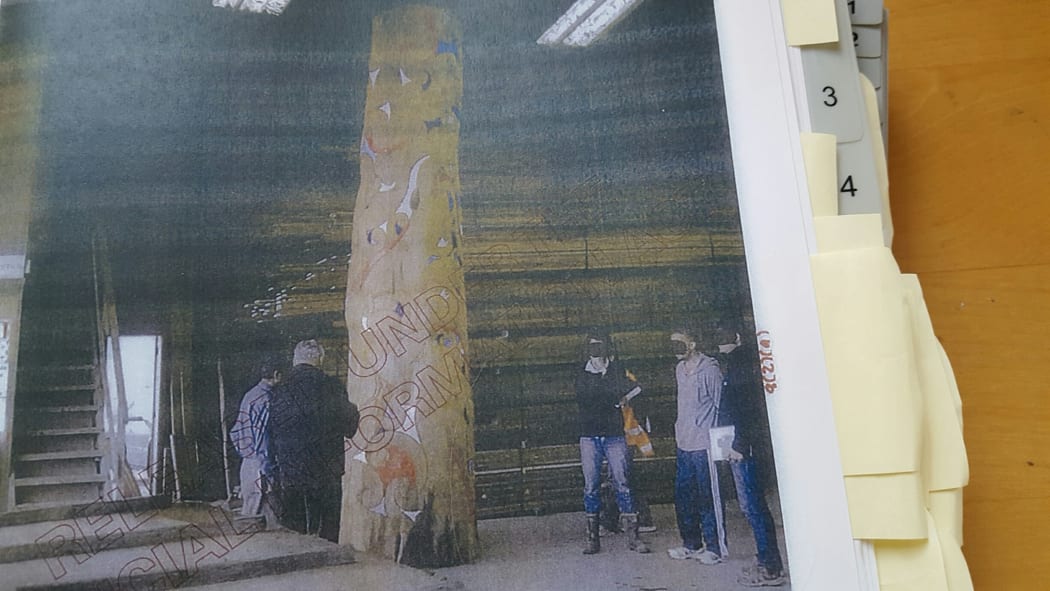
A kauri log with carvings on it, referred to as a 'temple pole'. Photo: Ministry of Primary Industries
Exports described as a 'sham'
The conservation group has argued that MPI has allowed exporters to send dressed timber and unfinished objects overseas, in violation of the Forests Act.
It described the exports as a sham and a scam, citing examples of 40-foot slabs approved as table tops, and lightly-engraved logs sold for hundreds of thousands of dollars, ticked off as temple poles by the Ministry.
It has also presented in evidence many internal MPI emails, which it said showed the Ministry itself was confused and dubious about the legality of the exports.
One official had asked others if the Ministry might have "an appetite" for taking the matter to judicial review itself, and asking the courts to clarify the Forest Act, rather than becoming "too permissive and risking negative ramifications for the Minister."
But Crown Law told the court the Ministry was not confused about the Act.
Ms Gorman said the internal emails, which date back some years, showed MPI officials debating and testing definitions in the Act, against the background of a rapidly-expanding export industry.
She said exporters were seeking advice on what was allowable, and the emails showed officials challenging certain exports, as their role evolved, which was what good enforcement officers did.
However lawyers for the Northland conservation group said the MPI regulatory regime was a largely voluntary one for the exporters, and there was no way of knowing for sure what was being sent out of the country.
The court has heard evidence that exporters can submit a notice of Intention To Export (ITE) to the Ministry, and many do.
MPI believed the system was working well.
But NEPS' lawyers said the Ministry had no way of knowing that, because there was no routine inspection of export consignments.
They said mandatory checking of timber exports was abandoned in 2004 - well before the swamp kauri boom - when Parliament amended the Forests Act, and considered it would be an "administrative inconvenience".
The High Court hearing is set to conclude today, with further evidence from MPI and the Ministry for Culture and Heritage -which administers the Protected Objects Act.
Justice Toogood has told the parties he has a great deal of reading ahead of him and his decision will take some time.

